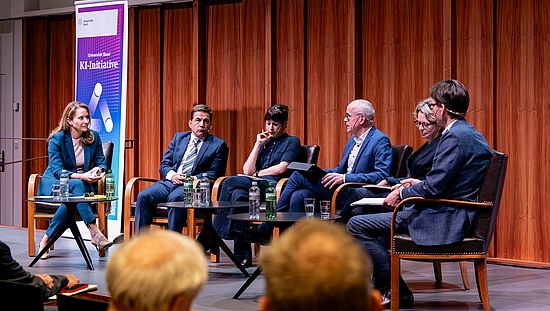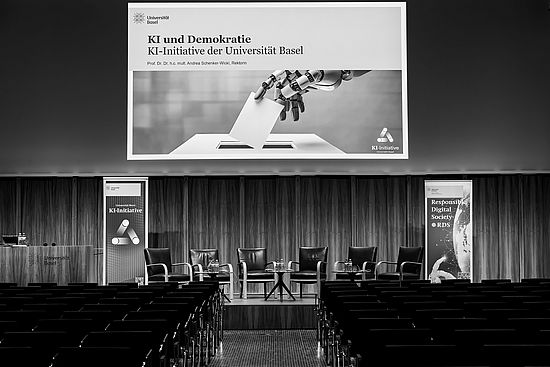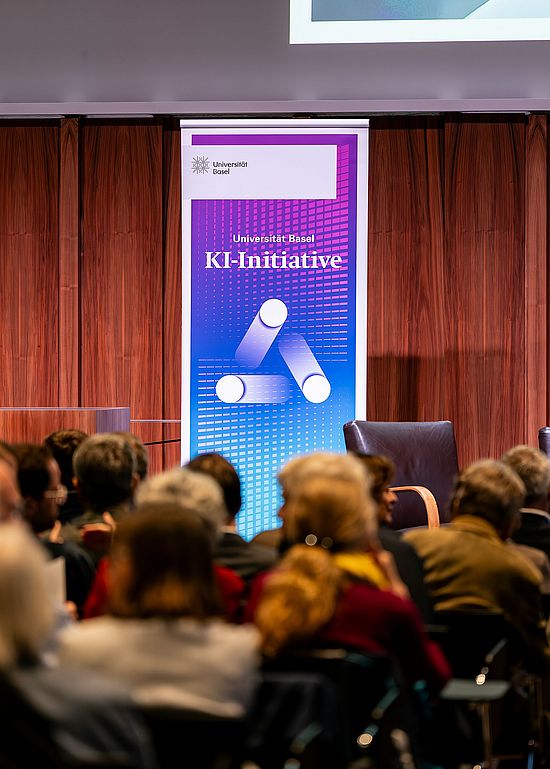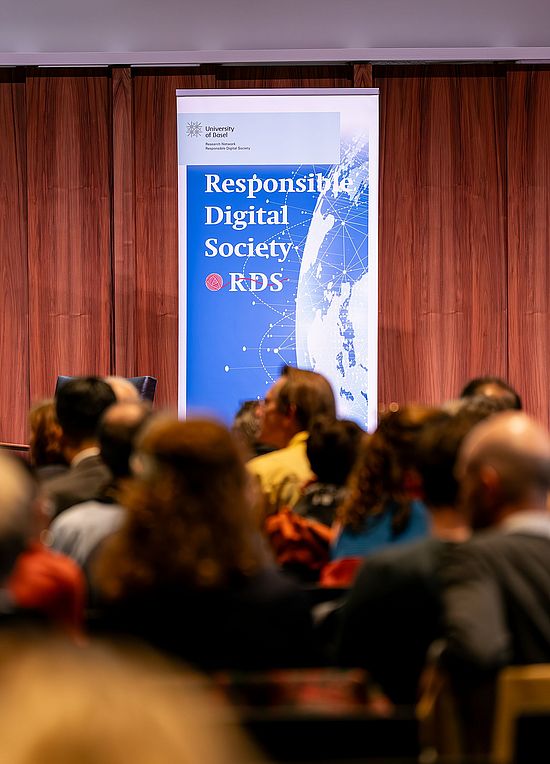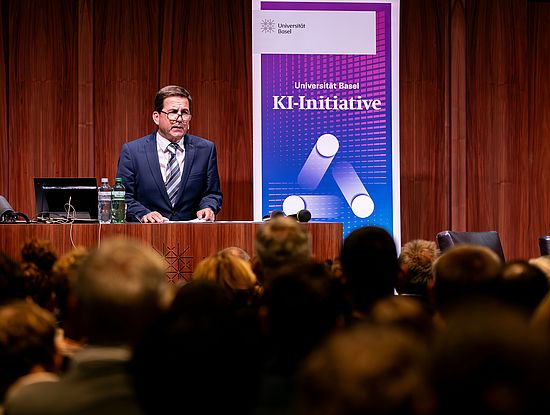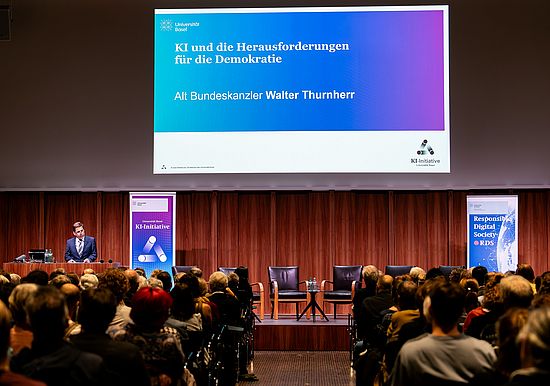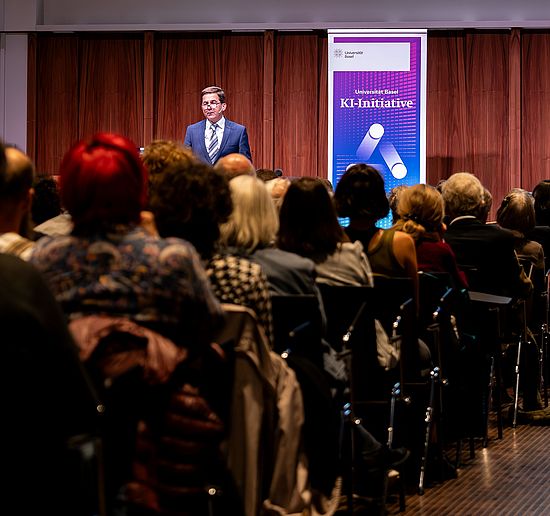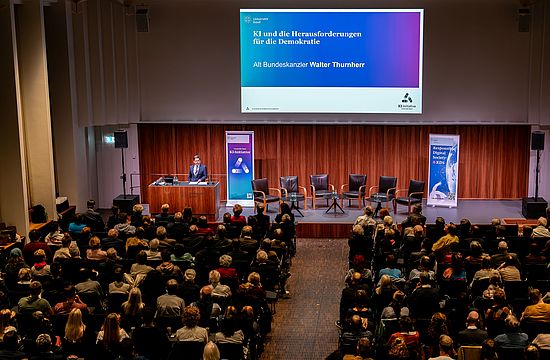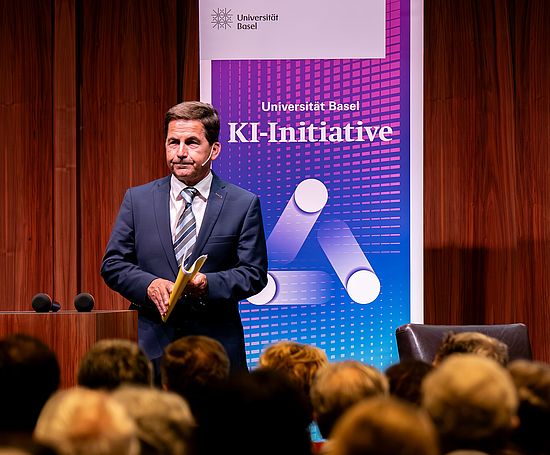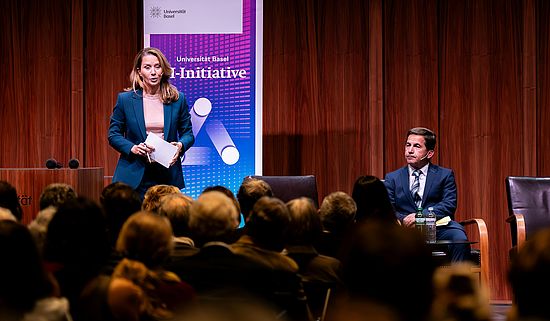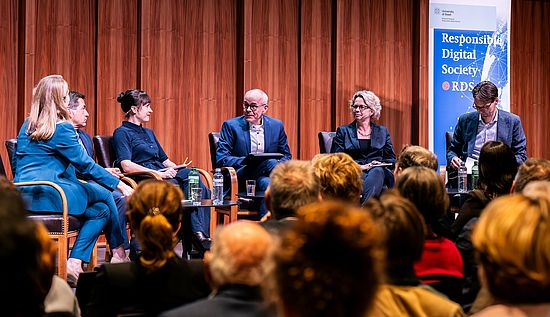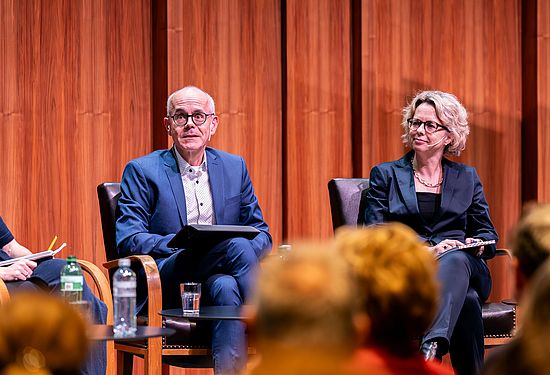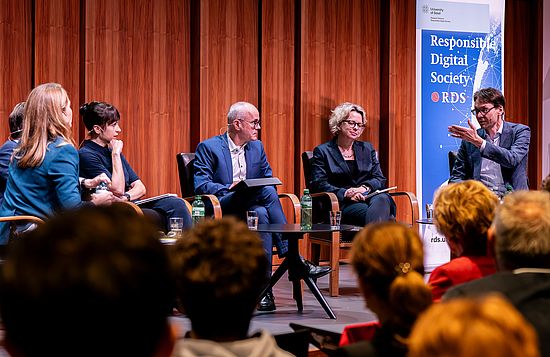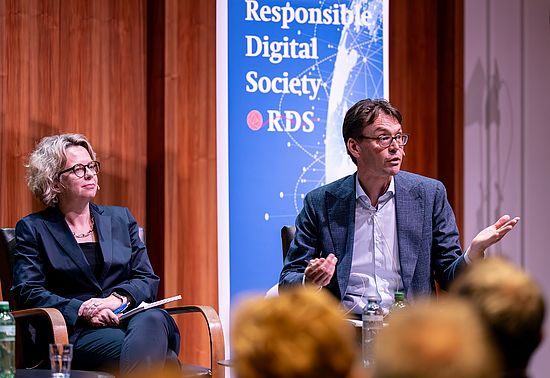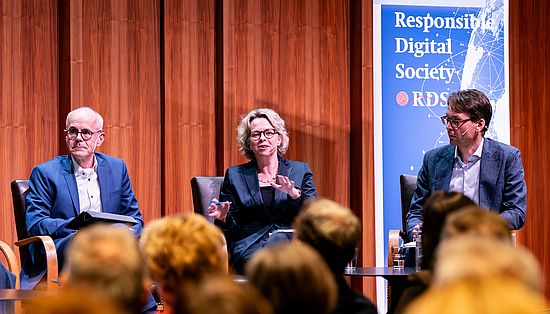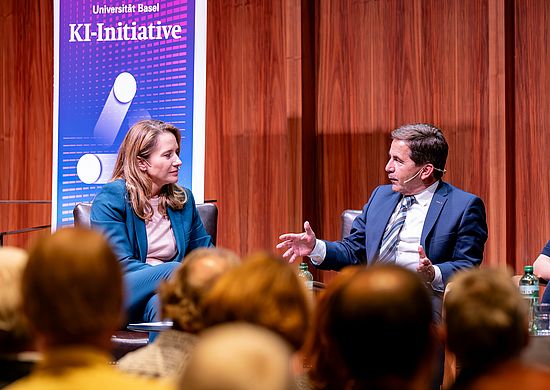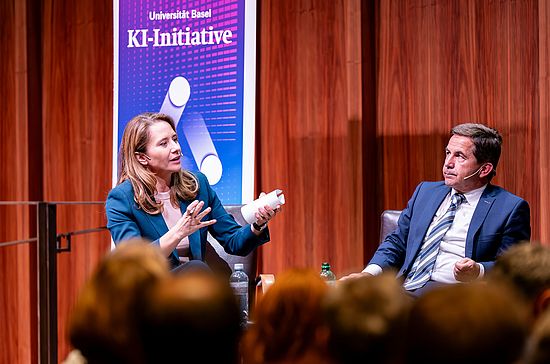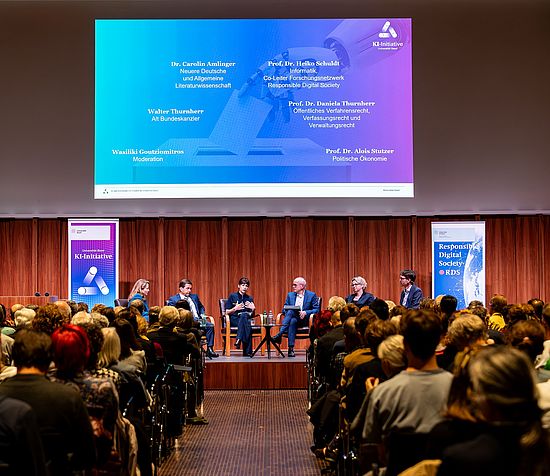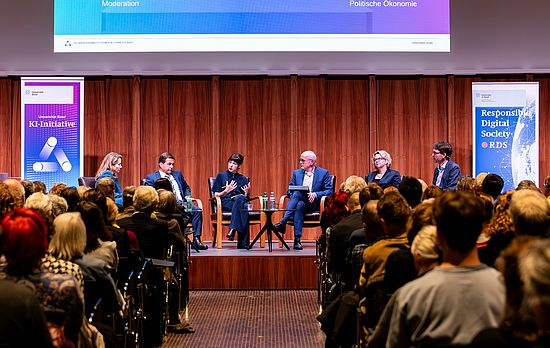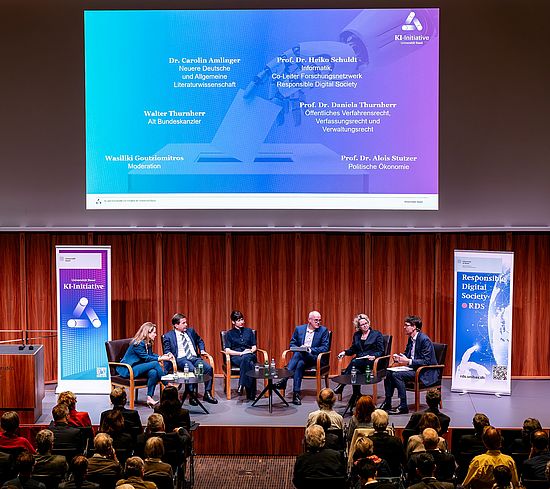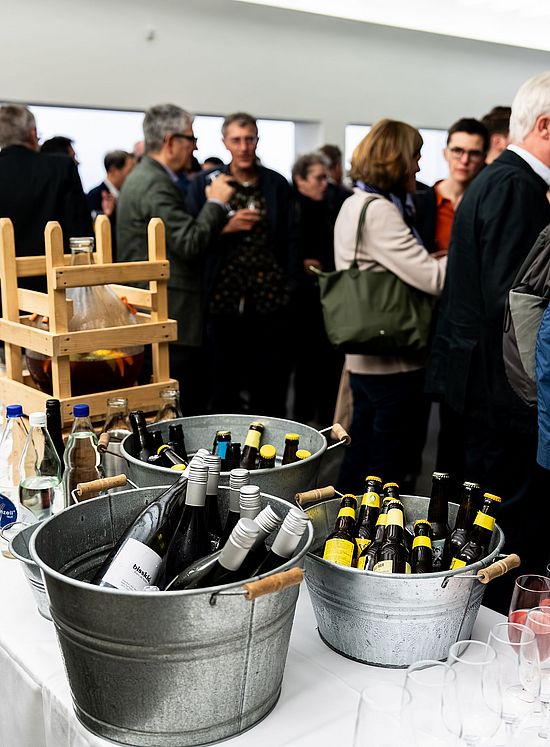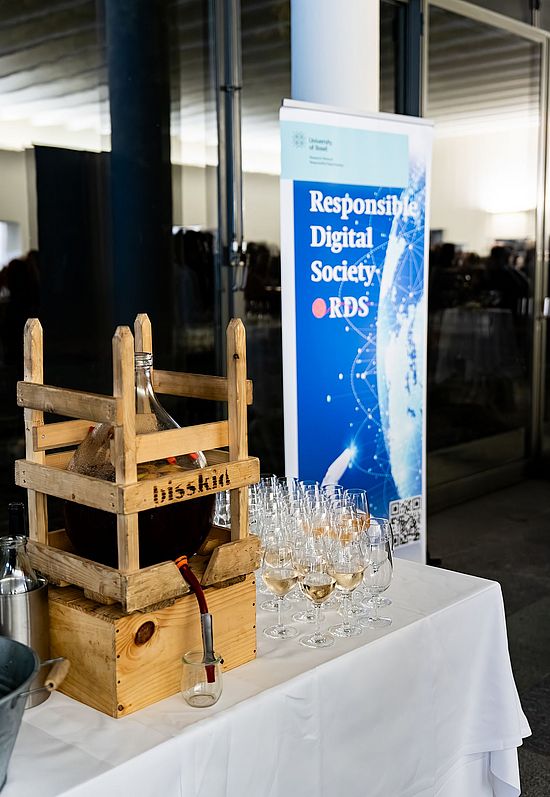/ News, Events
AI and Democracy



























On Tuesday, October 22, the first public event of the University of Basel's AI-Initiative took place, co-organised by the Responsible Digital Society Research Network. The interdisciplinary and topical event, attracted an audience of over 300 guests, from members of the university, to local high-school students, civic society, local and national politicians, benefactors of the university and representatives from the press.
After a welcome address from Prof. Dr. Dr. h.c. mult. Andrea Schenker-Wicki, the President of the University of Basel, former Federal Chancellor Walter Thurnherr gave a keynote speech followed by a panel discussion with academics from various faculties of the university.
Walter Thurnherr spoke about the almost exponential speed at which nuclear science has developed over the last 150 years and the parallels with the current development of artificial intelligence. He pointed out the enormous potential that these revolutionary advances hold for humanity, as well as the existential threat they pose.
The former Chancellor drew on his decades of experience in Switzerland's democratic system to provide insights into its strengths, but also into its potential weaknesses. He also pointed out where vigilance is needed and countermeasures required to prevent potential manipulation by actors who use AI for their personal gain or who want to destroy the trust that forms the basis of Swiss civil society.
The panel, consisting of Dr. Carolin Amlinger, Post-doc in the department of Modern German and General Literature, Prof. Dr. Heiko Schuldt, Professor of Computer Science and Co-Chair of the RDS, Prof. Dr. Alois Stutzer, Professor of Political Economics and Prof. Dr. Daniela Thurnherr, Professor of Public Procedural Law, Constitutional Law and Administrative Law, was moderated by Wasiliki Goutziomitros from the Swiss national broadcaster SRF.
The topics discussed included the question of liability when it comes to the misuse of AI tools in the political context, who should be responsible for monitoring and preventing this misuse, and the normalisation of ‘fake news’ and accepted untruths. The quality of the discourse demonstrated the existing expertise in AI and its effects and implications in the various fields of expertise at the University of Basel, and underlines the importance of harnessing this wealth of knowledge through the AI-Initiative to the benefit of research and teaching, and sharing this through outreach activities beyond the University.
More information about the AI-Initiative of the University of Basel.

